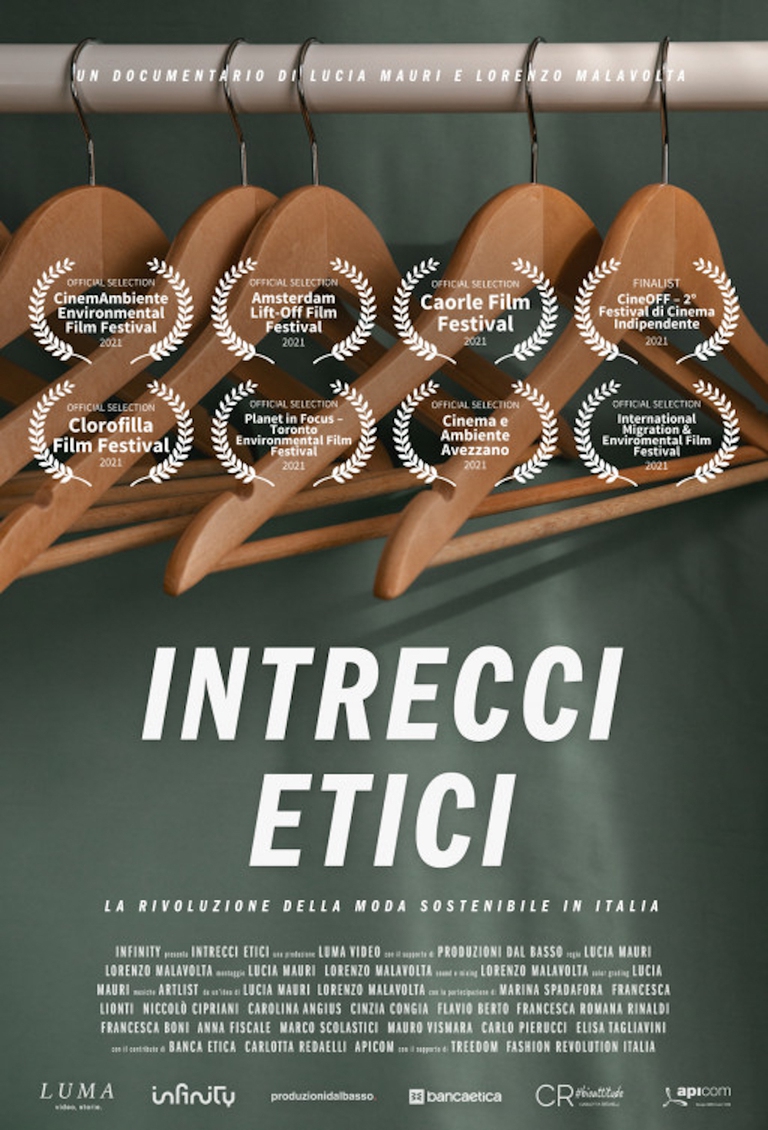https://www.lifegate.it/documentari-moda
- |
- Ten films and documentaries that address the theme of sustainability in fashion:the essential titles to understand the industry, its distortions, its logic and its consequences.
- Among the most popular topics is the story of the impact that the textile industry has on people:through fictionalized stories, direct testimonies and investigations, these nine titles represent a good way to get to know the problem of worker exploitation in depth.
- Another aspect much investigated in these works is that of overproduction:What happens to the clothes we throw away, sometimes practically new in the West?What consequences do they have on the ecosystems and social fabric of the countries where they are taken for disposal?
1.The True Cost (2015)
Produced among others by Livia Firth, co-founder of Eco-Age which Business of Fashion has included in the list of the most influential people in the world of sustainability in fashion and directed by Andrew Morgan, this documentary examines the clothes we wear, the people who they produce them and the impact the industry has on our world.While the cost of clothing has decreased over the decades, the human and environmental costs have increased dramatically.Filmed in many countries, "The True Cost" provides a timely account of both the most famous catwalks and the darkest corners of the slums and, in addition to Livia Firth herself, contains interviews with important players in the sector such as the designer Stella McCartney and the activist Indian Vandana Shiva.This documentary, released a few years after the Rana Plaza events, is one of the first timely accounts of the damage that capitalism and the textile industry as it exists today are doing to the world, a project that physically accompanies viewers to the places that our clothes touch before reaching our wardrobe, from photographers' flashes during fashion weeks around the world, to their arrival in department stores, but also in factories where working conditions are inhumane and riots are repressed with blood.
Available for purchase on the site
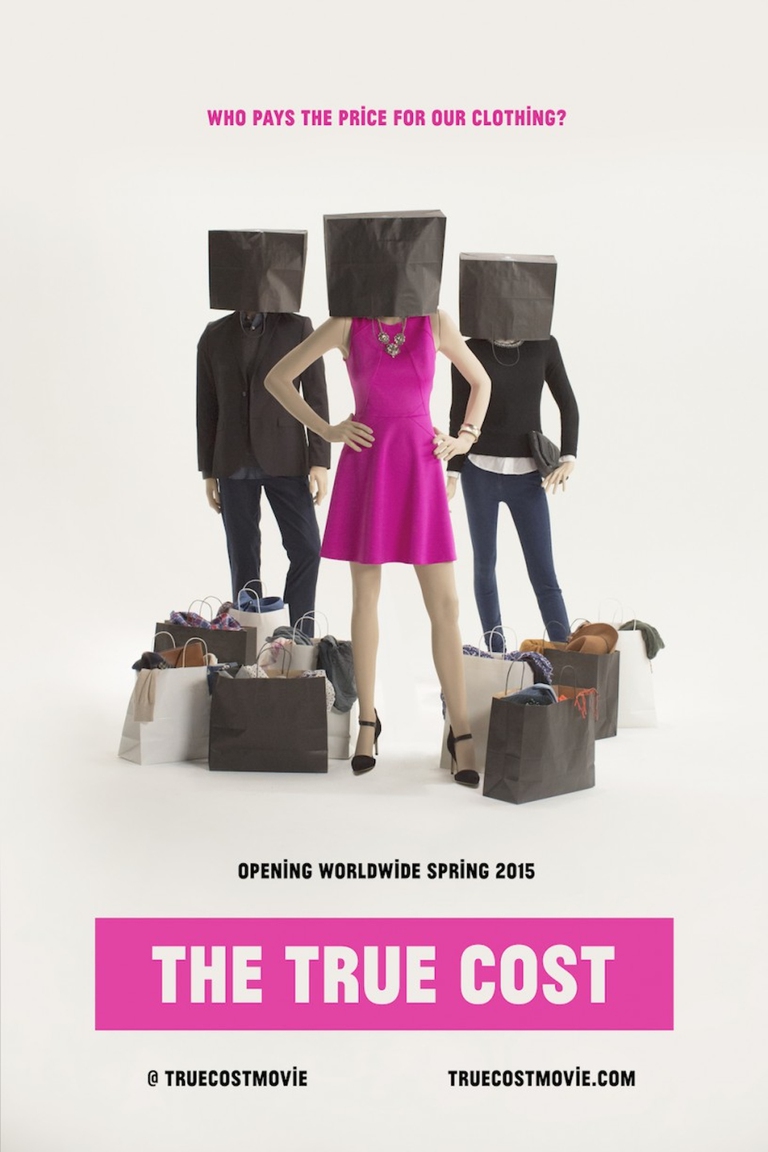
2.RiverBlue (2016)
No one should have the right to pollute waterways, yet the fashion industry does so without major consequences.Riverblue follows Canadian environmentalist Mark Angelo on a journey that crosses the world to show the consequences that one of the most polluting industries in the world has on waterways.The narrative voice will be familiar to you, it is that of Jason Priestley, Brandon of Beverly Hills 90210 on the small screen, always a supporter of clean water, who lent his voice to the documentary that more than any other examines the destruction of our rivers, his effect on people, from the communities that are most affected to all of humanity, and analyzes the possible solutions available for a more sustainable future.This documentary shows the chemical processes necessary for the production of our clothes, but also the irresponsible disposal of toxic chemical waste.Frame after frame it is told how cult garments such as jeans are responsible for the destruction of entire waterways and, consequently, the lives of the people who rely on those rivers for survival.
Available for purchase on Vimeo
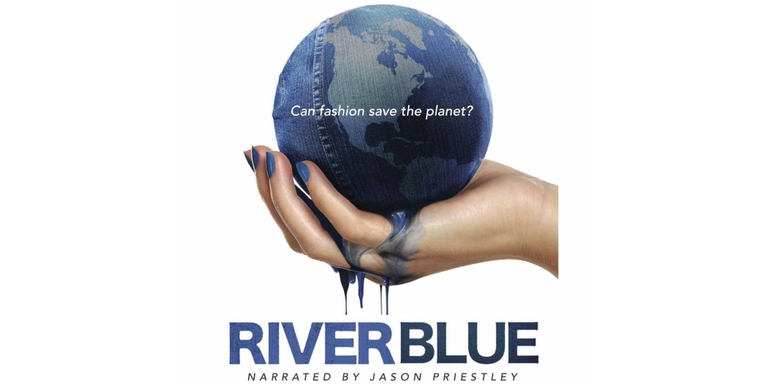
3.Rags (2021)
Written by Silvia Gambi, journalist and author of the content platform Only Sustainable Fashion, Stracci starts from an Italian reality, that textile district of Prato, to broaden the gaze to Accra and give an account not only of the environmental impact of the fashion industry (read under landfill), but also of the results that can be achieved through the recycling of fabrics.Directed by Tommaso Santi, this documentary tells not only the technical aspects, but also the history and passion with which the recycling of textile fibers is carried out in the Prato area:the regeneration of wool fibers is, in the Prato area, an ancient experience shared by hundreds of companies that have found a way to create wealth from what others threw away.However, Stracci also tells us what the final destination of the clothes that are thrown away and not recovered is, namely the enormous landfill, the largest in the entire African continent, located just outside Accra, in Ghana.Reuse and recycling also constitute a tangible opportunity for emerging countries, which is why the documentary concludes with perspectives and scenarios, giving an account of the quality levels that the recycling industry has achieved in Tuscany.
Available on Prime video and on demand on Chili
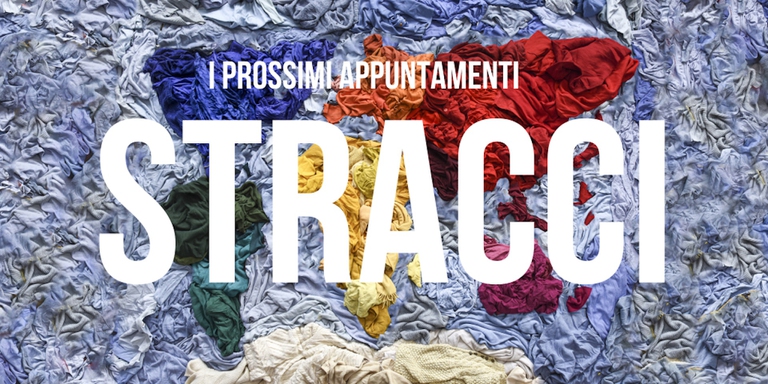
4.The Machinists (2010)
This British documentary explores the daily lives of garment factory workers in Dhaka, Bangladesh and, in particular, the film follows three women workers and a union leader who fight for fair wages, better working conditions and dignity in the textile industry.Through the personal stories of the protagonists, the documentary highlights the challenges faced by workers:grueling working hours, minimum wages and financial uncertainties.Also highlighted is the constant pressure from factory owners and threats against those who try to protest or organize.The narrative is fast and pressing and puts the viewer in a position to feel the pressure to which the workers are subjected, who constantly lack time:they rush to drop off their children with their grandparents, they rush to work, they rush for lunch and they rush to get home to spend a very small amount of time with their families.The Machinists denounces the effect of neoliberal capitalism that devastates the Global South while enriching the corporations of the Global North and instead of giving tools to developing countries, perpetuates their poverty.
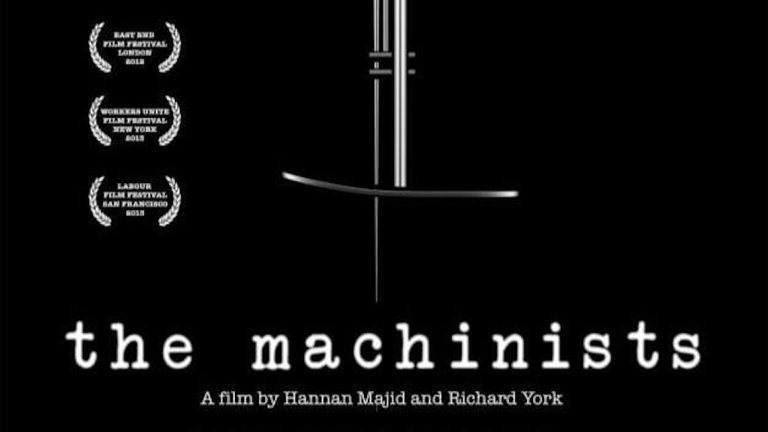
5.Unravel (2012)
This short documentary was created with the aim of helping viewers understand what happens to the immense production of waste in the fashion industry:when clothes are discarded in the West they do not disappear, but become someone else's burden, usually in a very poor country.In the case of Unravel it is the North, where the small town of Panipat is a collection center for discarded clothes to create recycled yarn.Not knowing anything about the origin of the clothes they find themselves processing, often new and in very large quantities, the Indian women who process textile waste to recycle them reflect on these clothes, constructing the stories of their journeys there based on the idea they have of the West and its habits and customs.This film paints a powerful picture of the politics of waste and the power dynamics that underpin waste management in the fashion world as it shares the stories and thoughts of the people tasked with creating solutions for someone else's often untouched, discarded clothes.
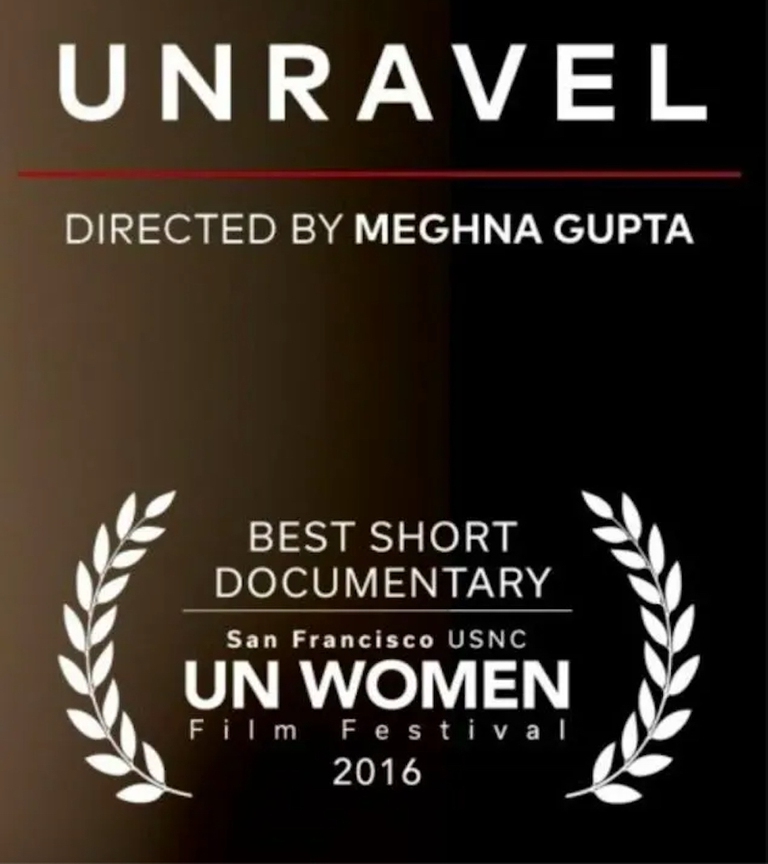
6.Junk:full wardrobes (2023)
Chile, Ghana, Indonesia, India and Italy:this six-episode docu-series signed by activist Matteo Ward and produced by Will Media and Sky explores the impact of fast fashion on people and the environment starting from places, telling the stories of those who experience the consequences of overproduction firsthand .In the episodes dedicated to Chile and Ghana, the theme of the world's textile landfills is explored, where tons of clothes discarded elsewhere arrive in a continuous cycle.The episode filmed in Indonesia instead focuses on the production of artificial fibres, which put biodiversity at risk, threatening the survival of ancient forests and thousands of animal species and which compromise people's health.India is then the backdrop to another burning issue, that of cotton and its real cost:on a journey that crosses the country from north to south, retracing the history of a T-shirt, from the fields to the dyeing plants, placing emphasis on the consequences of the increasingly high demand for this fibre.The final episode is finally dedicated to Veneto, land of production of some substances, PFAS, which are highly toxic for the environment - in Veneto they have poisoned the second largest aquifer in Europe - but extremely functional to the textile industry because they are the ones that make clothes water-repellent.

7.Stacey Dooley Investigates:Fashion's Dirty Secrets (2018)
This documentary, written by investigative journalist Stacey Dooley and broadcast for the first time by the BBC in 2018, addresses the issue of water, focusing on the enormous quantity necessary for the cultivation of cotton, a widely used but also extremely wasteful fabric in terms of resources.The journalist visits her ex's website Aral Sea in Uzbekistan, now almost completely dried up due to the irrigation of the cotton fields, telling of the serious environmental and socio-economic consequences that this has brought, with the disappearance of marine life and the unleashing of toxic dust storms.Dooley's journey then continues on the Citarum river in Indonesia, which has become a sewer for hundreds of textile factories that pour toxic waste into the water, forcing the local community to live near a very dangerous source:in fact, the collection of water samples reveals the presence of heavy metals, highlighting the serious consequences for public health.
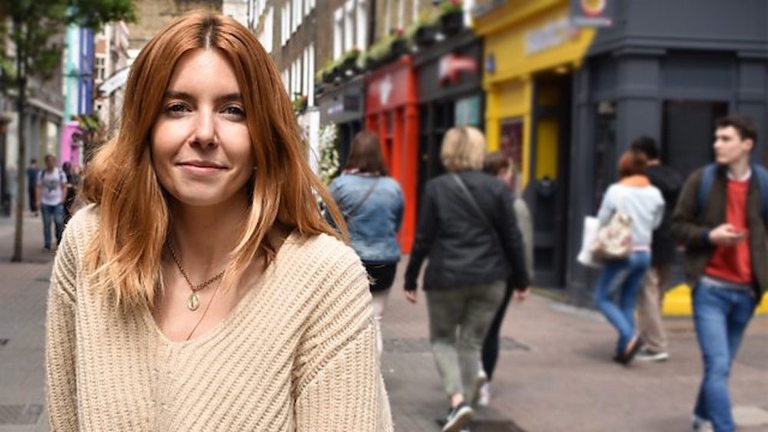
8.Made in Bangladesh (2019)
Directed by Rubaiyat Hossain, Made in Bangladesh is the story of women garment factory workers and their struggle for dignity.The protagonist is called Shimu, she is 23 years old and works in a clothing factory in Dacca, Bangladesh, in inhumane working conditions and for this reason she decides together with some colleagues to found a union.Threatened by management and disapproved by her abusive husband, Shimu does not give up and continues her fight.This film, based on the life of a woman whose testimonies the director collected for three years, raises, in addition to the question of the exploitation of textile workers, also that of the condition of women in the sector, who represent the majority of the workforce and who they are the most exploited.
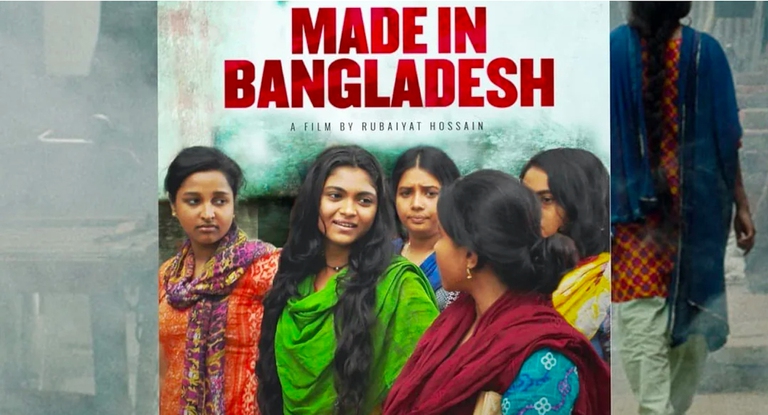
9.Closing the Loop (2018)
“Closing the Loop” was the first documentary in the world on the circular economy:directed by Graham Sheldon, director who won two Telly® Awards and an Emmy® Award, explores how the transition to a circular model is an essential condition for the textile sector.The feature film focuses on the transition from the current linear economy of produce-use-waste to a circular economy of produce-use-bring back to life (sometimes also referred to as the zero-waste or “cradle-to-cradle” economy).In support of the United Nations Sustainable Development Goals - in particular Goal 12 on Responsible Production and Consumption - the documentary explores five key strategies to achieve circularity, namely reduce, reuse, recycle, renew and reinvent - demonstrating virtuous examples in Europe, Latin America and Africa and presenting the opinions of experts from institutions such as the World Economic Forum and the Universities of Cambridge and Harvard.
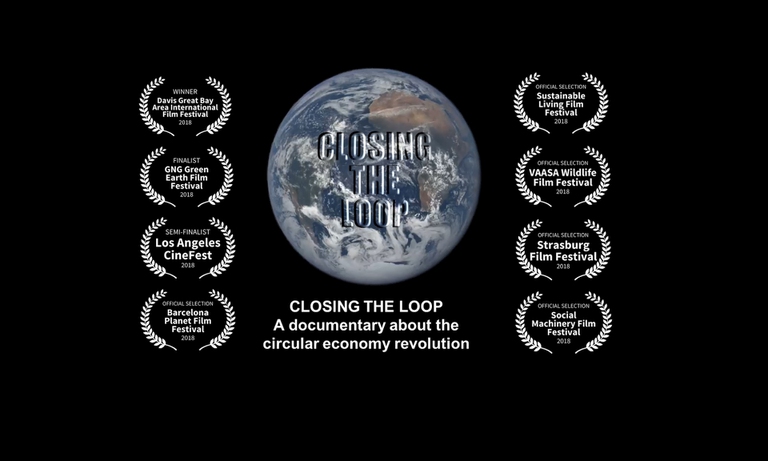
10.Ethical entanglements (2020)
Lucia Mauri and Lorenzo Malavolta signed this documentary produced by Luma Video, which highlights the current revolution underway in Italy to make the fashion sector more sustainable.The film explores different aspects of slow fashion and sustainable fashion in the country, recounting the realities of those who deal with natural fibers and fabrics, those who produce only to order, those who transform waste into resources and, finally, those who use fragile and has decided to commit to bringing value to its territory.The duo's objective with this film is to bring out and enhance the positive models present in Italy and demonstrate that change is possible if other producers and consumers convert to more responsible choices.
